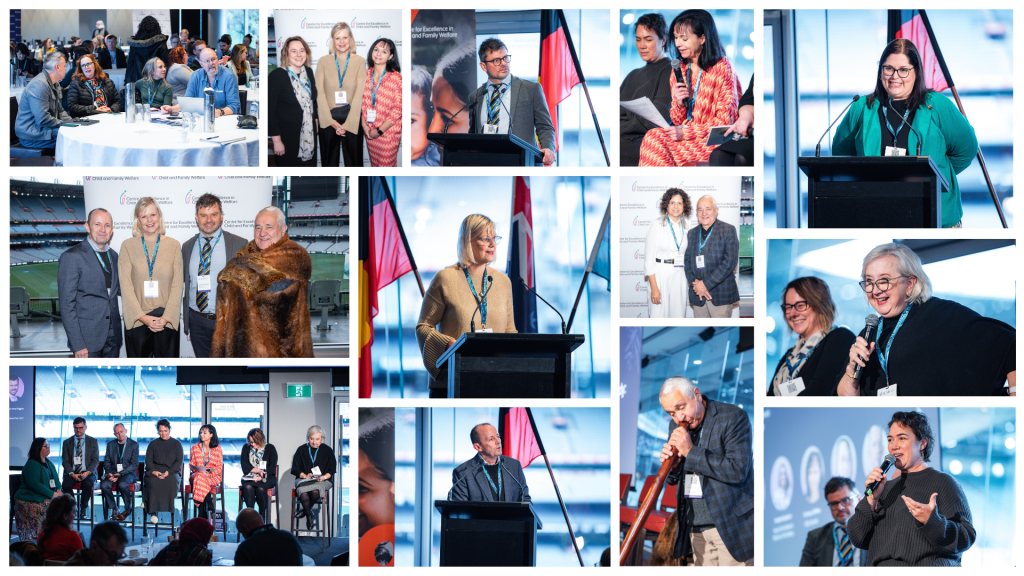The Centre brought together over 200 sector leaders and government stakeholders in June to hear the findings of the Australian Child Maltreatment Study.
This landmark study stems from the 2017 Royal Commission into Institutional Responses to Child Sexual Abuse, responding in gaps in the evidence base on which we can derive policy.
CEO Deb Tsorbaris told attendees the findings of the ACMS required everyone at the table and committed to working together to end child maltreatment.
She said the research gave the sector a chance to have a national conversation about our children and to use the research to guide our actions.
“It also gives us a clear blueprint for action – we know exactly where to direct our energy, where the most urgent needs lie, and where we can have the most immediate short and long-term impacts. The research shows us where our policies and programs have already had an effect and are influencing historic social shifts,” she said.
“What we do next will matter. It will need to bring real, impactful changes to people’s lives.”
Head of the National Office for Child Safety Rebekah Kilpatrick opened the event, reminding attendees that the best place to start was by having brave conversations, not just with children and young people, but with each other as adults.
Prof. Ben Mathews of QUT (Queensland University of Technology) and Prof. Daryl Higgins of Australian Catholic University presented the sobering findings of the study, highlighting some of victories and reminding the sector that change is possible and has been achieved.
Watch the opening speeches and the ACMS Research presentation here.
Key findings & Recommendations
Key Findings
1. Child maltreatment is endemic in Australia
2. Multitype maltreatment is common
3. Australian youth are suffering now
4. Girls are at much higher risk
5. Health impacts accrue quickly
6. National crisis in self-harm and suicide attempts
Recommendations
1. A National coordinated approach.
2. Invest more, and better. Public health approach, emphasising prevention.
3. Societal level: broad policy for social determinants; new social norms.
4. Community level: sectoral support to respond to maltreatment (health, education, services).
5. Individual level: parent support.
6. An emotional revolution: a paradigm shift.
7. A sexual and relational evolution: turbocharged prevention, education.
Panel Discussion
Thank you to our panel of government and sector leaders for their generous contributions to the discussion. They spoke of the need for all sectors to work together to support children and families.
The panel included:
- Annette Lancy – AG Deputy Secretary at the Department of Families, Fairness and Housing
- Anne Hollonds – National Children’s Commissioner
- Dr Lisa J Griffiths – CEO of Ozchild
- Catherine Liddle – CEO of SNAICC
- Rebekah Kilpatrick – Head of the National Office for Child Safety
- Prof. Ben Mathews – Lead Investigator, ACMS
- Prof. Daryl Higgins – ACU
Resources
- Event Recording – opening and the ACMS briefing
- Presentation Slides – download PDF
- Media Release – Doing the right thing by Australia’s Children
- Event Photo Gallery – view images from the event
- ACMS website – www.acms.au
- The ACMS Brief Report 2023
- MJA Special Edition
- ACMS Findings Infographic set






